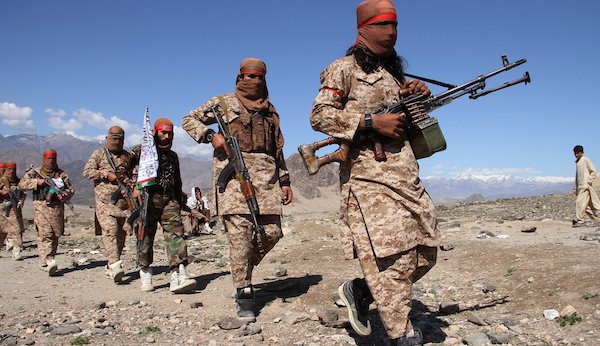International
Taliban fighters seize Afghanistan’s second largest city, Kandahar

Taliban fighters have taken control of the city of Kandahar, Afghanistan’s second-largest province, after another round of incursions into the capital, Kabul.
A member of the Afghanistan Parliament, Gul Ahmad Kamin, who confirmed this on Friday, said the insurgent group has continued its rapid advancement toward Kabul.
Kamin said he and many others had made their way to a military base close to the city’s international airport and were awaiting a flight out.
“Many government soldiers have surrendered and the rest fled,” Kamin said
In a statement by the Taliban media arm on Friday, the group said they had taken control of the governor’s office, police headquarters, as well as other key operational centers throughout the city.
“Hundreds of weapons, vehicles and ammunition were seized,” the Taliban statement said.
The Taliban also released a video of their fighters celebrating after capturing the city.
Kandahar, which lies on the junction of three major highways, is of particular strategic importance and was formerly a major hub for US military operations. Its seizure marks the most significant gain yet for the Taliban, which has now taken control of 13 of the country’s 34 provincial capitals.
The vast majority of the Taliban’s territorial gains have come since the withdrawal of American forces, which began in May and is scheduled to be completed by late August.
READ ALSO: Three more Afghan provincial capitals fall to Taliban
The city of Herat, Afghanistan’s third-largest city and a major urban center in western Afghanistan, fell to the Taliban on Thursday evening, with the group taking control of the governor’s office and Herat police headquarters, according to Afghan officials.
Qala-I-Naw city, the provincial capital of the northwest Badghis province also fell to the militant group on Thursday evening, a Badghis provincial council member confirmed.
Similarly, the city of Ghazni, a key provincial capital on the road to Kabul, also fell to the militant group earlier on Thursday, after “long and intense fighting,” according to Nasir Ahmad Faqiri, head of Ghazni provincial council.
Ghazni lies around 93 miles (150 kilometers) south of Kabul, on a major highway connecting the capital with Kandahar.
With the capture of Ghazni, the Taliban is now in control of key locations both to the north and south of Kabul.
Their earlier capture of areas of the Baghlan province, which lies to the north of Kabul, raised alarms among US officials because the location is considered essential for the defense of the capital.
Join the conversation
Support Ripples Nigeria, hold up solutions journalism
Balanced, fearless journalism driven by data comes at huge financial costs.
As a media platform, we hold leadership accountable and will not trade the right to press freedom and free speech for a piece of cake.
If you like what we do, and are ready to uphold solutions journalism, kindly donate to the Ripples Nigeria cause.
Your support would help to ensure that citizens and institutions continue to have free access to credible and reliable information for societal development.
























